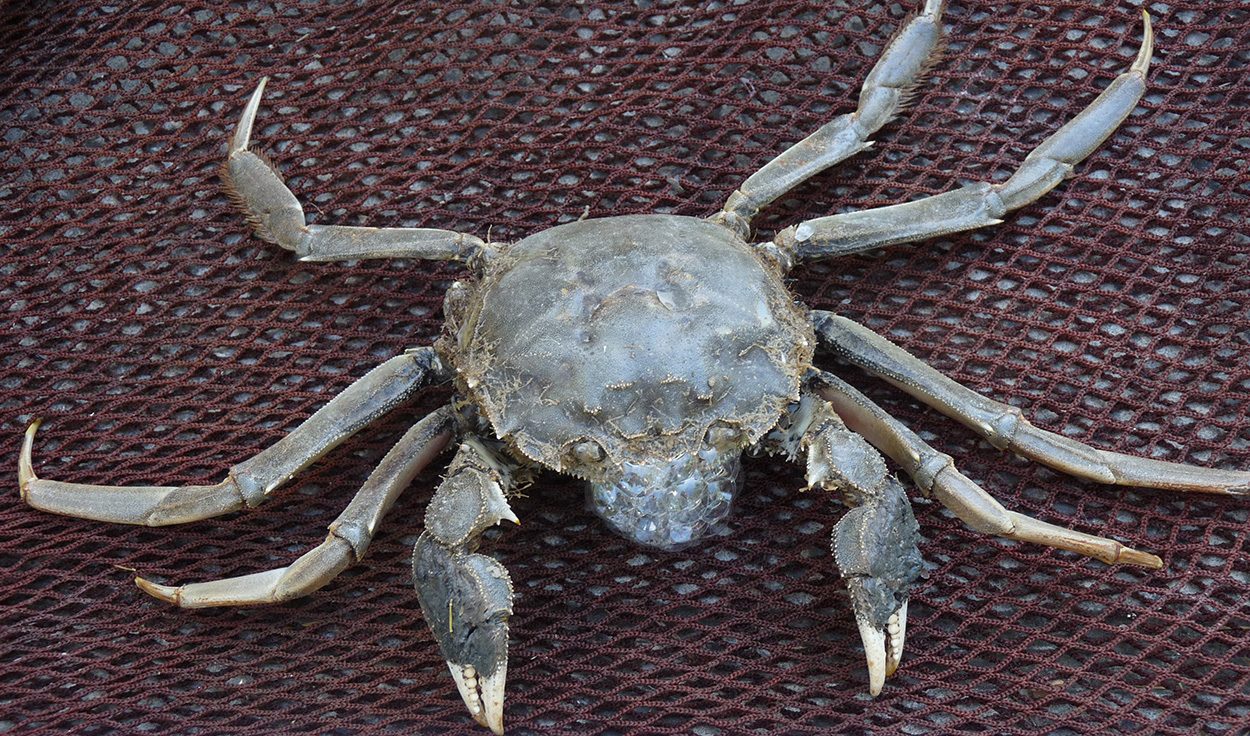Invasive animals can cause severe environmental damage. A study now shows that the local spread of exotic animals is not only harmful to biodiversity, but also to the economy. To do this, scientists collected all the economic damage caused by invasive crustaceans known around the world and came up with an impressive amount: it is said that they have already caused costs of 236 million euros – however, the list is far from complete.
Freshwater ecosystems are particularly vulnerable to the introduction of exotic species such as mussels, fish, aquatic plants or crustaceans. In the latter, especially invasive lobsters and crabs cause high ecological damage, as they can have a significant impact on their environment due to their size, central role in ecosystems, and their tolerance of different living conditions in general.
The economic damage is largely unknown
“In recent years, great progress has been made in understanding the ecological impact of invasive species on ecosystems,” explains Bleip Hoebroek of the Senckenberg Research Institute and Museum of Natural History in Frankfurt. “However, although the pathways and effects of these alien species have received more attention in recent years, the economic costs involved are often poorly understood.”
In collaboration with an international team of researchers, Haubrock has now summarized the financial damage crustaceans are doing to freshwater around the world. The scientists used the “InvaCost” database, which is supported by the French National Center for Scientific Research (CNRS), as the basis for their investigations. All known costs caused by invasive species recorded by reports and studies should be included in the database. Haubrock and his team filtered and evaluated all entries from the InvaCost database that can be traced back to crustaceans.
Mainly lobster and shrimp
The result: “Global economic costs for invasive aquatic crustaceans have reached €236 million since records began in the 1960s,” Hobrock says. Most of that amount came from lobsters and crabs, but even within these two groups there were particularly expensive species. “We can attribute the costs incurred by the lobster to the lobster in Sweden – this species has caused 101.5 million euros in damage there since 2000,” explains Haubrock.
The share of costs for invasive cancers is around 130.3 million euros. The European green crabs and the Chinese mitten crabs are particularly responsible. The latter was introduced by ship from Asia at the beginning of the 20th century and has now spread throughout Europe. According to scientists, monetary damage is mainly reflected in damage to the ecosystem and loss of resources, which especially affects fisheries. However, many of the entries listed in the InvaCost database cannot be mapped to a static sector.
Record probably incomplete
Another problem with the underlying data, according to the researchers, is that they believe it is incomplete. All entries considered in the study relate to damage to Central Europe, North America, and Japan. “Unfortunately, there are significant data gaps when it comes to recording invasive crustaceans and the resulting costs: it starts with the absence of entire continents, such as Africa or Australia, and continues with missing data on periods and species. So we assume that the reported monetary costs are underestimated. To a large extent,” emphasizes Haubrock.
The scientists therefore stress the need for better systematic recording of the costs incurred by invasive crustaceans. This is the only way to better assess the extent of monetary damage. “This will allow national and regional authorities to invest in appropriate policies and measures that can help mitigate these impacts in the future,” the researchers wrote.
Source: Senckenberg Research Institute and Natural History Museums; Specialized Essay: Macro Ecology, doi: 10.1016/j.scitotenv.2021.152325

Communicator. Reader. Hipster-friendly introvert. General zombie specialist. Tv trailblazer

